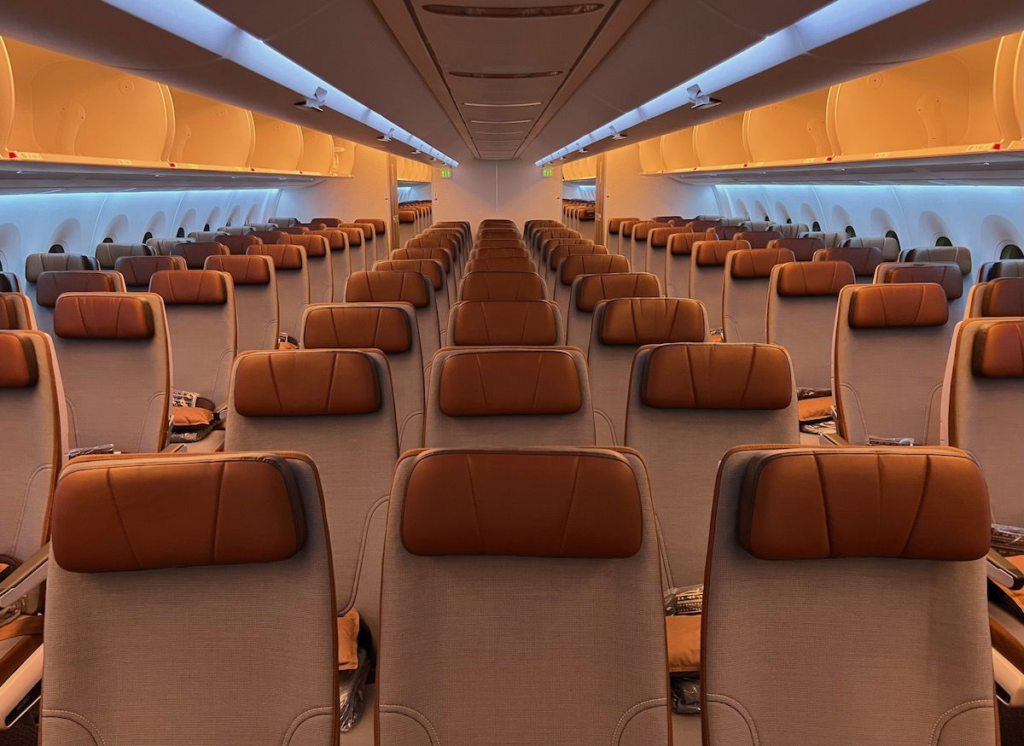Frustrating as it might be, there are all kinds of situations where you may find yourself downgraded on a flight. In this post, I’d like to talk a bit about what you’re entitled to in these situations, since it’s a question I get all the time. What can cause you to be downgraded on a flight? What are you entitled to if you are downgraded on a flight? It’s not necessarily so straightforward…
Reasons you can be downgraded on a flight
Let’s start by covering the very basics — what constitutes a flight downgrade? For the purposes of this post, I’m talking specifically about situations where you’re involuntarily downgraded from one class of service to a lower class of service. This could be a downgrade from first class to business class, a downgrade from business class to premium economy or economy, or a downgrade from premium economy to economy.
Downgrades are rare in the scheme of things, though they do happen. You could be downgraded months before a flight, or once you’re onboard a flight. What could cause you to be downgraded?
- It could be that there’s an aircraft swap (either way in advance or close to departure), which means a particular cabin is no longer available on a flight, or more people are booked in that cabin than there are seats
- It could be that the airline oversold a cabin, so needs to downgrade people (this could also be due to last minute operational needs, like needing to move a crew around)
- It could be that a seat on a plane is broken, and as a result, a passenger can’t sit in it
- It could be that you booked a premium cabin ticket but are then rebooked in a lower cabin, either because your flight was canceled, you misconnected due to a delay, etc.
Let me emphasize that for the purposes of downgrades, we’re not talking about when your seat is swapped from one seat to another within the same cabin, since airlines don’t guarantee seating.
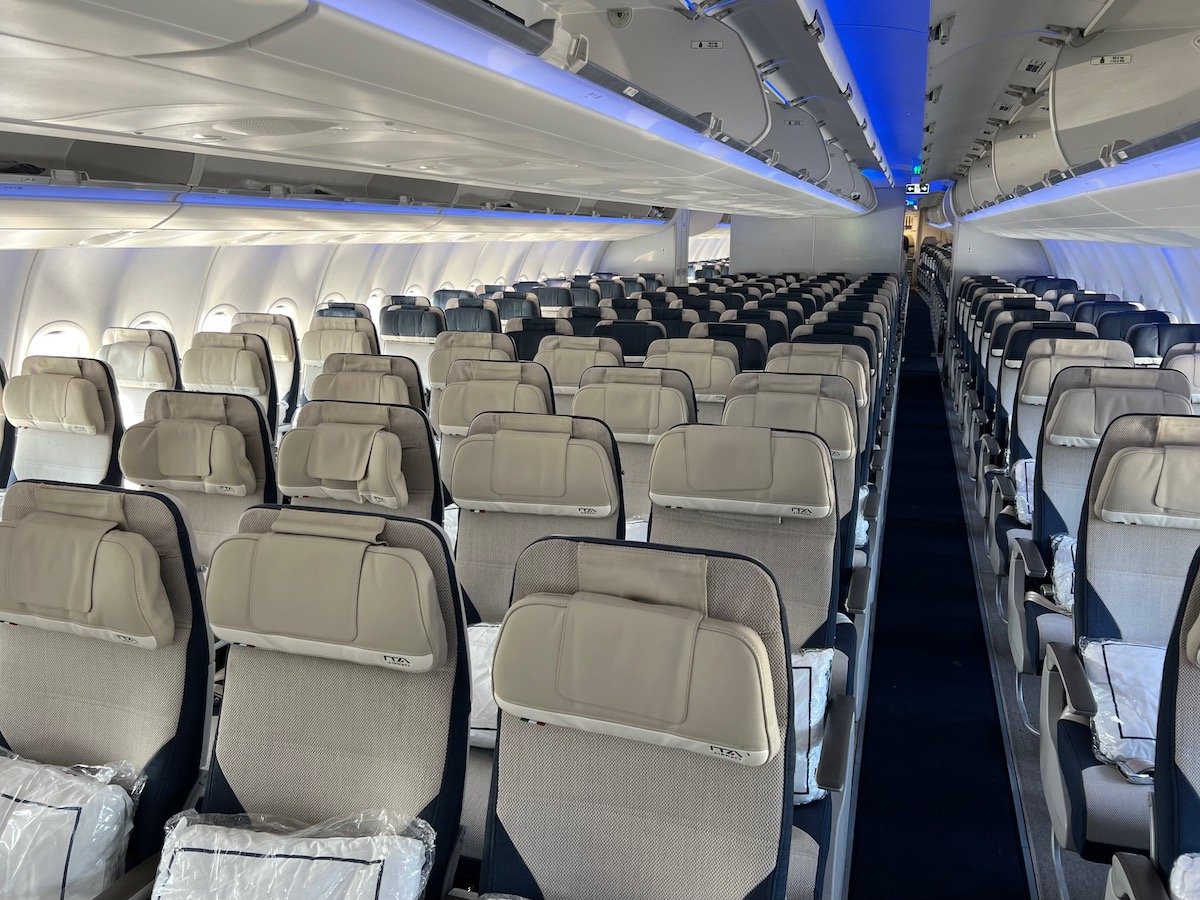
What you’re entitled to for a flight downgrade
In the event that you deal with a flight downgrade, what are you entitled to? Legally, this comes down to two factors:
- What the contract of carriage says, which is what you agree to when you book a ticket
- Any relevant government regulations regarding downgrade rules; these differ significantly around the globe
Broadly speaking, many government agencies don’t clearly dictate what airlines have to do in the event of a downgrade. Similarly, many airline contracts of carriage give airlines a lot of flexibility when it comes to downgrades, as contracts of carriage are typically pretty one-sided, protecting the airline a lot more than the consumer.
Since I often also talk about redeeming miles & points, let me emphasize that your rights should be the same whether you paid cash for a ticket or redeemed miles. As an award passenger, you should be no more likely to be downgraded than anyone else.
With that in mind, let me address a variety of considerations that could impact what you might be entitled to in the event of a downgrade.
You’re entitled to the fare difference when downgraded
You’re always entitled to the fare difference if you’re involuntarily downgraded from one cabin to another, as that’s just common sense — you’re not getting what you paid for, and airline contracts of carriage even support this.
Let’s say that you book a flight 10 months in advance in Air India first class, and then six months before departure, there’s an aircraft swap to a plane without a first class cabin. In these situations, you’re generally only entitled to a difference in fare between what you booked and what you paid for.
So whether you paid cash or miles, expect you’ll be refunded the difference between the first class fare and the business class fare, in the currency you paid. Keep in mind that airlines often won’t be very proactive about this, so you’ll probably have to ask.
If you’re on a partner award ticket, you’ll usually want to reach out to the program through which you booked the ticket to request the difference in miles, since they can most easily process that.
Lastly, some airlines will be willing to work with you to accommodate you on another flight or routing that still features first class, but generally speaking, that’s a courtesy rather than a legal requirement. That’s also significantly more complicated when the airline through which you booked and the airline operating the flight aren’t the same.
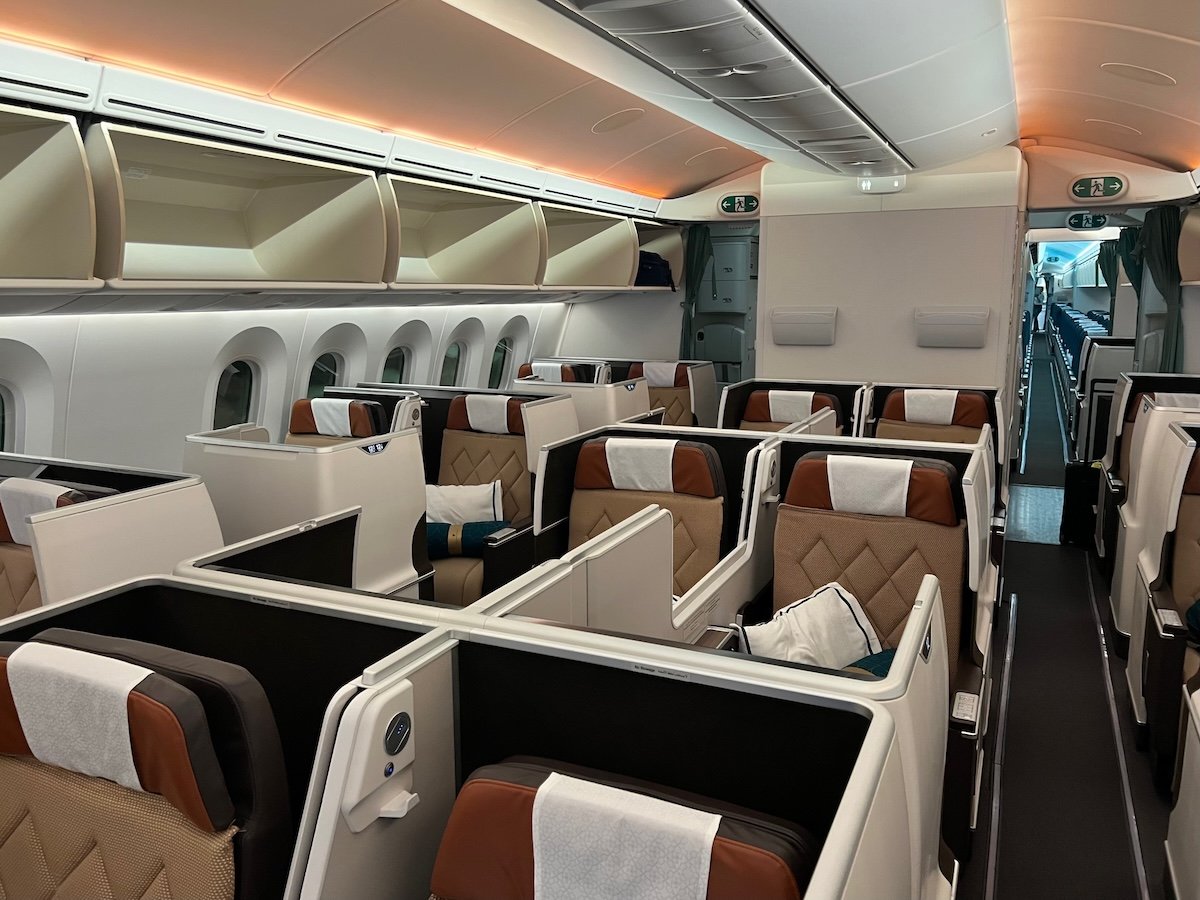
Europe has the best consumer protections
Many countries in Europe have excellent consumer protections in the form of EC261, which covers you in the situation of flight delays, downgrades, and more.
Under this policy, if you’re downgraded, you’re entitled to:
- Reimbursement of 30% of the ticket price for flights of up to 1,500km
- Reimbursement of 50% of the ticket price for flights of 1,500 to 3,500km
- Reimbursement of 75% of the ticket price for flights of over 3,500km
As you can see, this can quickly become pretty lucrative, especially on long haul flights. This applies to all airlines when departing from an eligible part of Europe, while it only applies on European airlines when departing for Europe.
Just as a point of comparison, the United States Department of Transportation (DOT) doesn’t dictate any downgrade compensation, beyond just the fare difference.
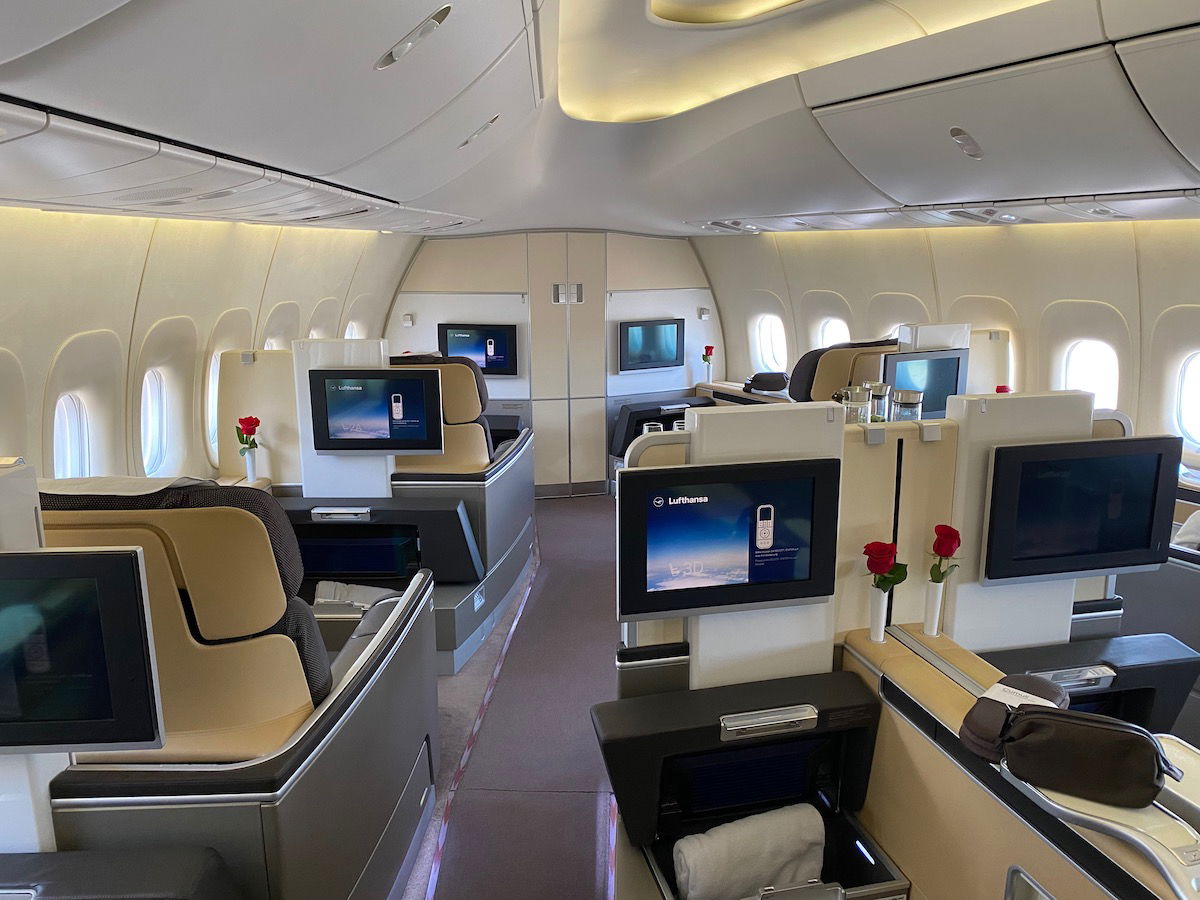
Downgrades due to operational issues are complicated
What happens if you have operational issues on the day of travel, and end up not traveling in the class of service you were confirmed in? Just to give a couple of examples:
- Say you have a first class ticket from Los Angeles to Charlotte to Tampa, but you misconnect in Charlotte, and are rebooked in economy on that second segment
- Say you’re ticketed in first class on a severely delayed flight, and you decide to get rebooked on another flight that will get you to your destination early, but there’s only economy available
It’s important to recognize the difference between a voluntary downgrade and an involuntary downgrade. If you miss your flight due to a delayed inbound flight, or because of operational disruptions, and if you choose to take the next available flight in economy, that’s generally considered voluntary.
Why? Well, you’re choosing to take that flight, rather than waiting for the next available flight in the same class of service (which could be in hours, or days, or weeks, or…). Airlines make no promises about how soon they’ll get you to your destination, so airlines would argue that’s not an involuntary downgrade, since they could probably get you to your destination in your initial class of service at some point.
However, this is very much a grey area, and it can be a very thin line between a voluntary downgrade an an involuntary downgrade. For example, if you misconnect and the airline proactively rebooks you in a lower class of service on another flight without you asking, is that a voluntary or involuntary downgrade?
Regardless, I find that most airlines are willing to provide a partial refund in the case of downgrades, regardless of what the circumstance is. So the refund would be pro-rated based on the percent of the distance you are traveling in a downgraded cabin.
This would generally apply if you paid cash, booked an award ticket, or redeemed miles for an upgrade. Meanwhile if you received a complimentary upgrade on account of your elite status it wouldn’t apply, since there’s nothing to refund, as there was no payment method.
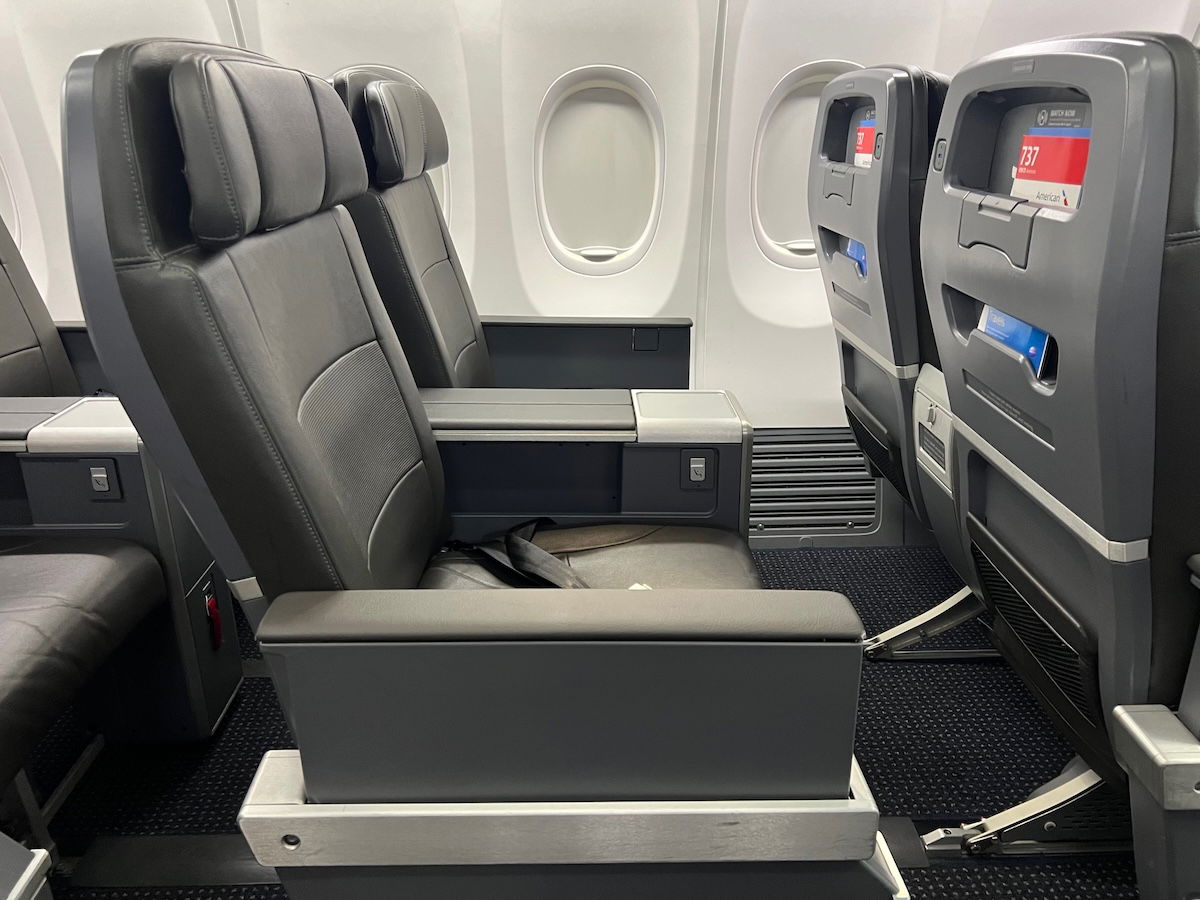
Goodwill compensation is up to the airline
Lastly, I think it’s worth mentioning that beyond what you’re legally entitled to, many airlines may extend a gesture of goodwill, even if they’re not legally required to.
If you are frustrated about a downgrade situation and feel you haven’t been made whole, you can always contact the airline and see if they’re willing to offer you bonus miles, a voucher, etc. There’s no guarantee they’ll do it, but in many situations they will.
If you’re on a partner award ticket, I would only expect the airline on which you’re traveling to offer you anything, rather than the airline through which you booked (since they have no control over the downgrade).
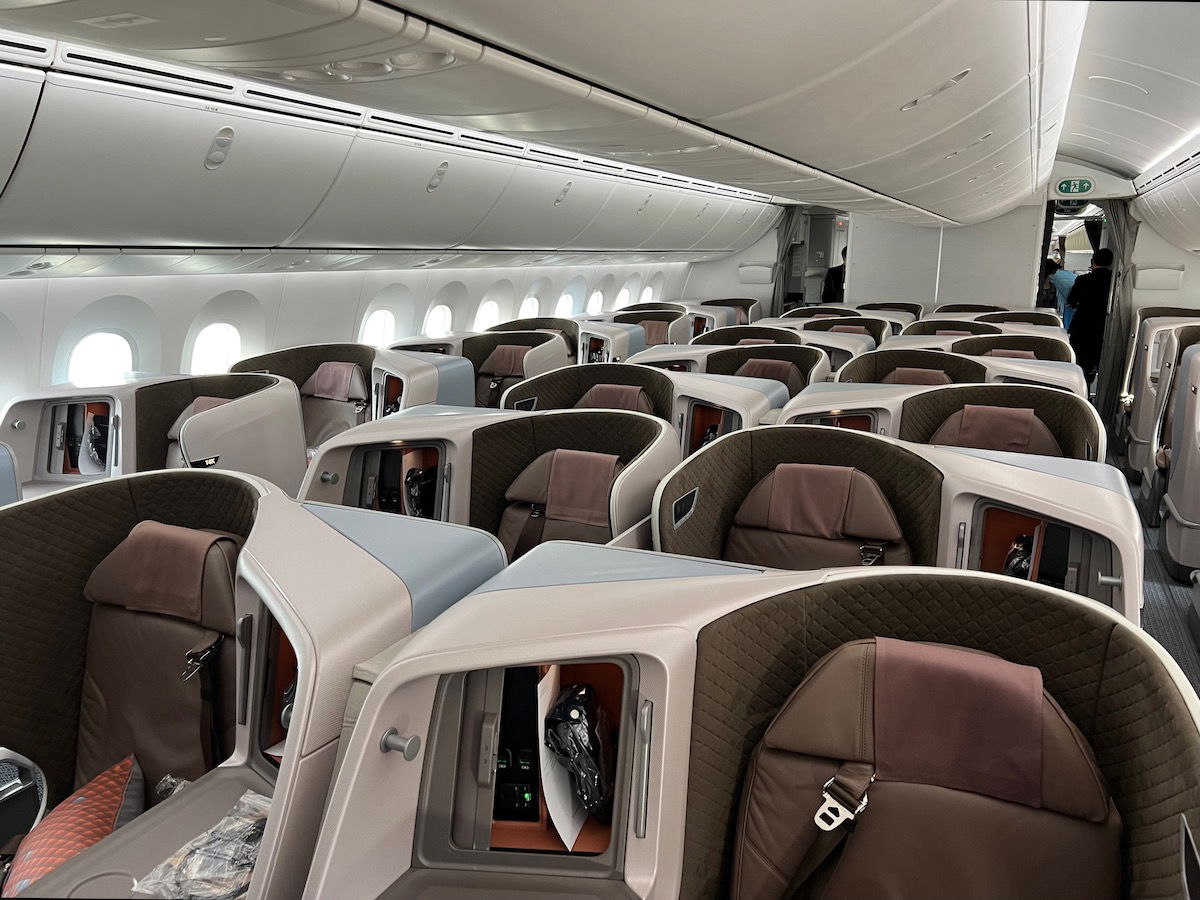
Bottom line
Flight downgrades happen sometimes, and what you’re entitled to depends on the airline contract of carriage and the relevant government regulations. Most airlines only promise a refund of the fare difference for involuntary downgrades, while some government bodies may promise more. For example, in much of Europe, you’re entitled to a 75% refund if you’re downgraded on a long haul flight.
Hopefully the above is a useful rundown of what you can expect in these situations.
If you’ve been downgraded on a flight, what was your experience like?


